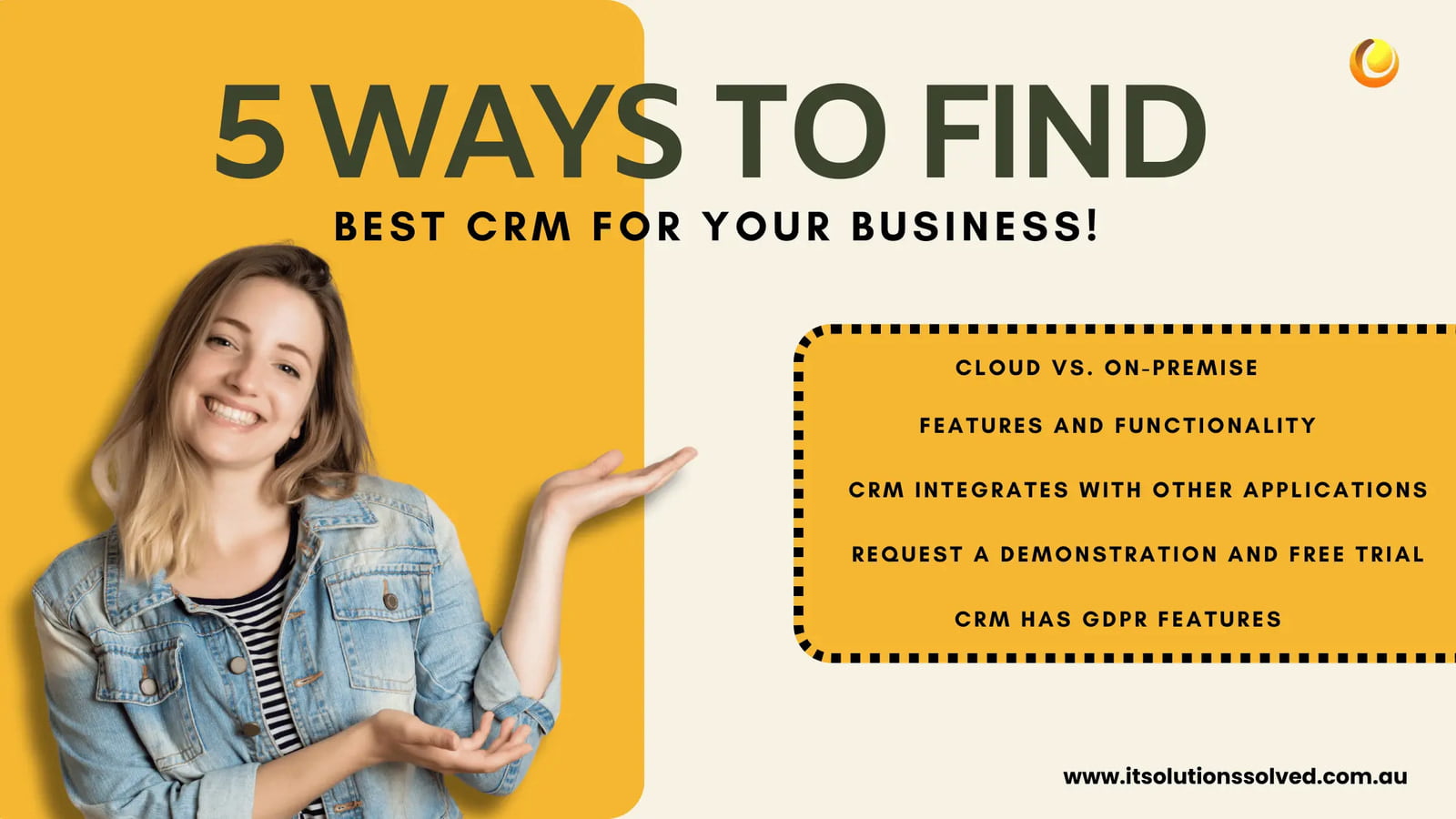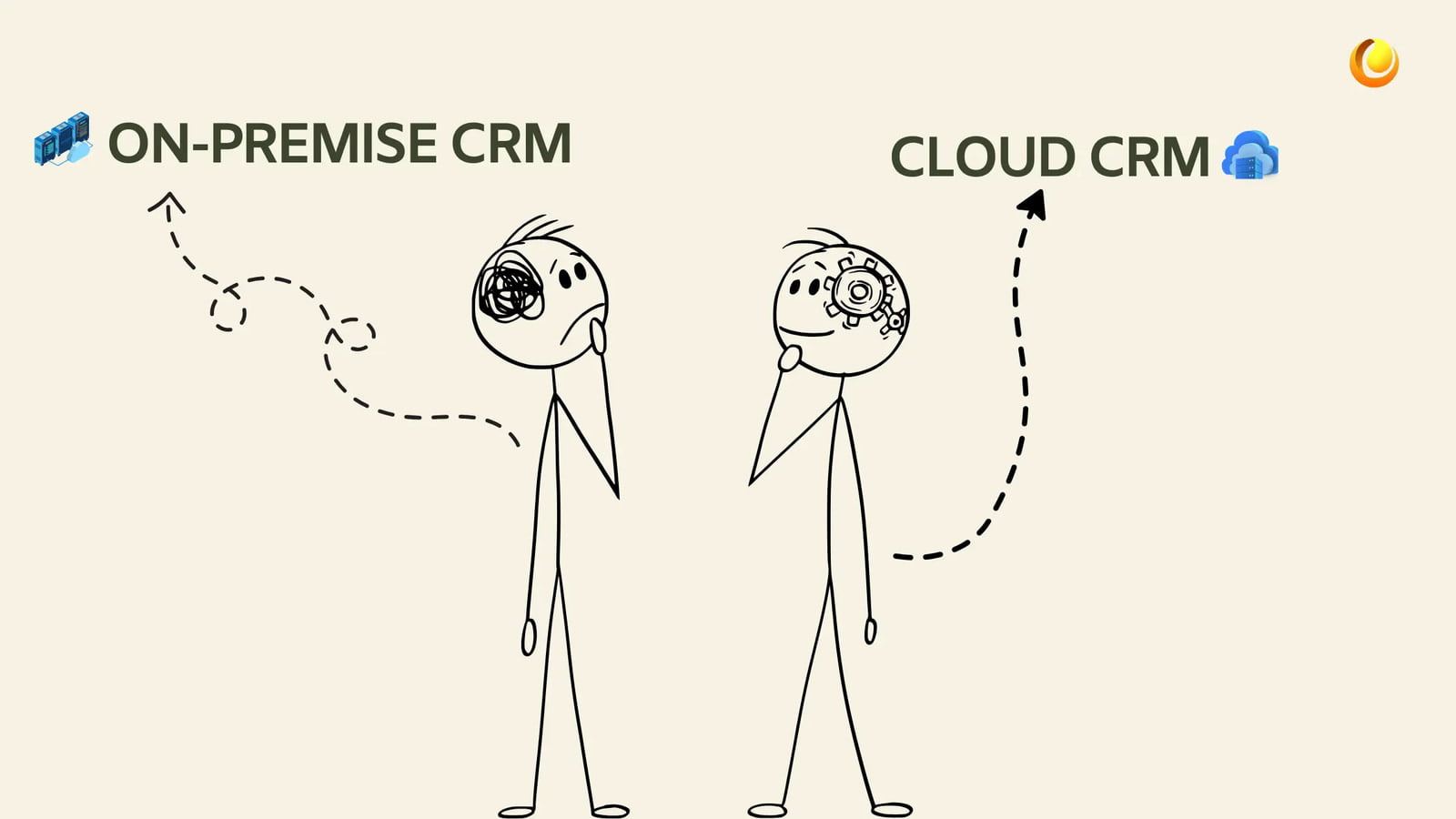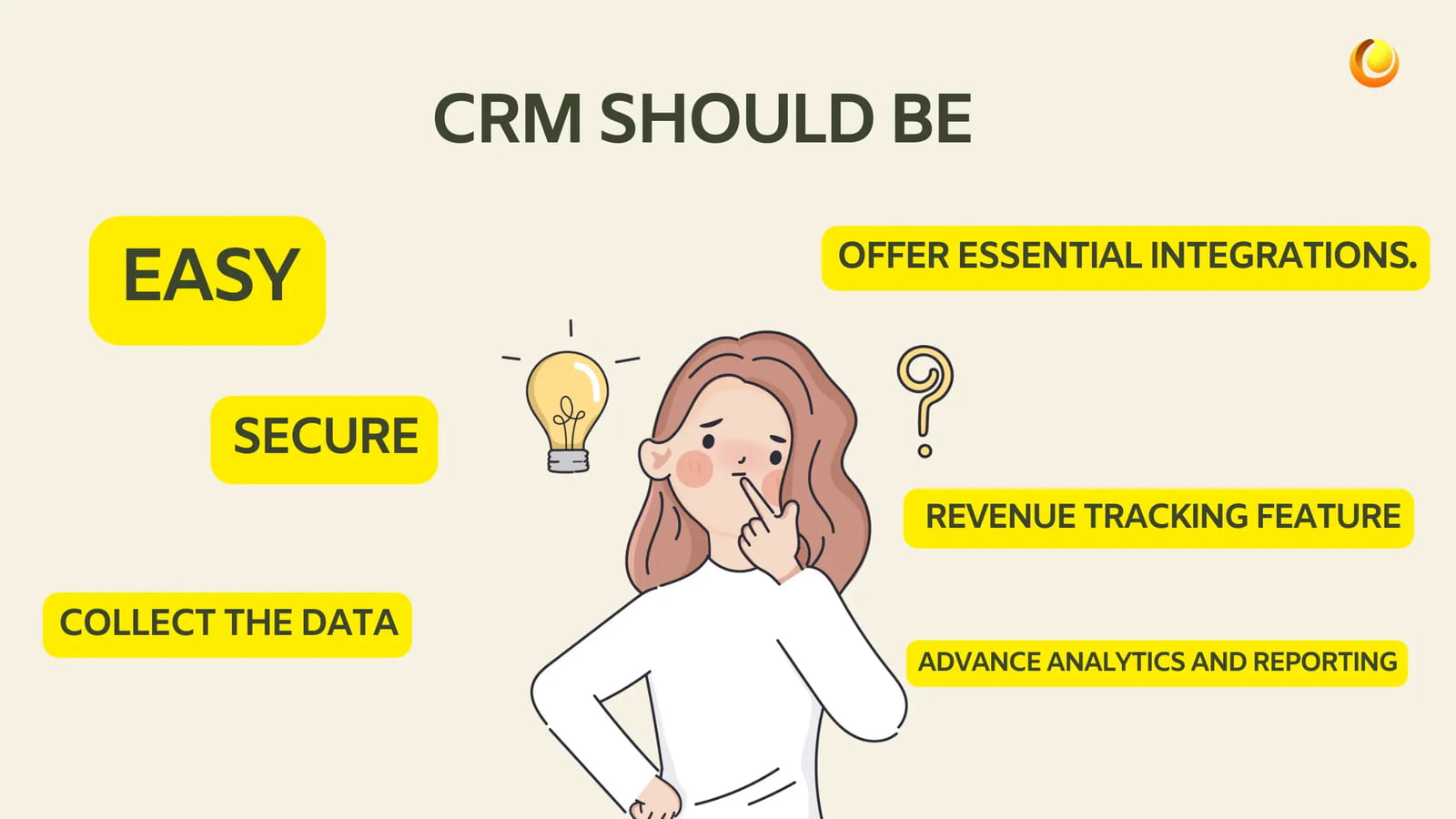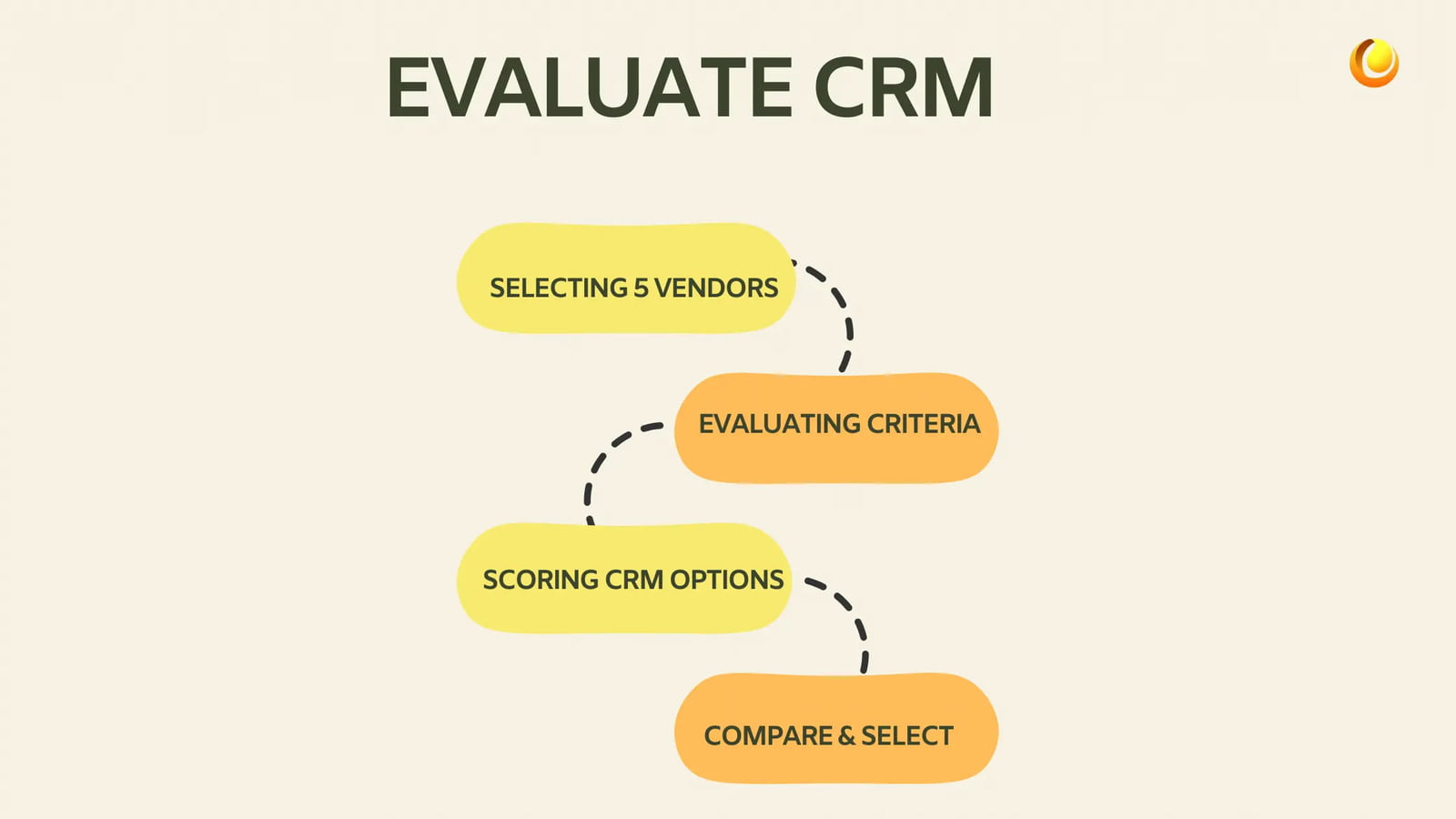Selecting the right CRM for your business which can meet your all requirements is a little bit difficult task especially when you have a lot of options in the market from the cheapest to expensive ones. Cheap doesn’t mean low quality and Expensive doesn’t mean easy. In this post, we will discuss five ways to find the right CRM for your business.

Introduction
CRM is one of the best investments you can make in your business. The average ROI of CRM is $8.71 for every dollar you spend on your CRM implementation. The selection process of CRM can be overwhelming when you have tons of options in the market. Businesses that are selecting and implementing CRM based on just demand and priorities without any proper homework on the best CRM end up with expensive outcomes.
To make sure that your CRM is a good fit for your business, you have to take it a little bit seriously. You need to consider the pros and cons of the CRM vendor that you want to implement in your business and team. Here are our top 5 things that will help you in selecting the right CRM for your business.
Decide on CRM deployment: Cloud vs. On-premise
The first thing you should focus on is whether you require a Cloud or On-Premise CRM system. On-premise CRM/On-site CRM is software you have to install on your server which is physically located within a building. It involves buying licences, installing, operating and maintaining. Another option is Cloud CRM, which is installed, managed and updated by the vendor i.e. you only need internet and an electronic device to access your CRM.

So, here are some important factors that help you decide between Cloud and On-premise CRM for your business. It varies from business to business but let us make it easy for you, ask yourself some questions such as
What is the more affordable CRM solution for your business?
On-premise CRM is expensive than the Cloud one as you have to manage it all by yourself or need a dedicated professional team. You will need a specialised team for this job as you need all the required hardware, and maintenance costs, have to pay salaries to IT guys and also ensure that your servers run consistently.
On the other hand, Cloud CRM is managed by vendors, so you only need to pay monthly, quarterly or annual subscription models. There can be some hidden costs & you have to depend on vendors for some specific features and flexibility.
Decide based on what you want to achieve with the CRM and what problems you want to solve. Most businesses decide on key areas such as Contact management, Opportunity management, Analytics, reporting, lead qualification and automation. Basically, On-premise is more flexible and Cloud CRM is more practical.
For new and small businesses, it is recommended to use Cloud-based CRM for your business. If your business is on a big scale with a lot of complexity then you can either go for On-premise or Cloud CRM with a professional CRM consultant.
Know what features and functionality you need
Every business is unique when you literally think about region, processes, products, services, customer base and resources. You may need to think about when your business grows, your CRM setup should keep up with the growth. Nowadays, It’s getting relatively easy, you just have to buy higher plans or upgrade your CRM. but still, there are some recommended features you should look into in your CRM for your business.

Your CRM should be easy to use, secure, gather the data effeciently and offer essential integrations. It should have a revenue tracking feature and allow role specificity. You should be able to use automation and advanced reporting & analytics tools. Your CRM must have contact, document and lead management functionalities. These kinds of features you should look into your CRM.
Whether it’s your business’s first CRM or you want to switch or maybe upgrade your exisiting CRM. You need to look into some specific features and make sure that features are not there just for the sake of the name.
Ensure the CRM integrates with other applications
Make sure your CRM integrate with other multiple applications. It improves efficiency as you can streamline internal processes such as adding automation software can reduce manual efforts. It also enhances your data accuracy i.e. your data is up-to-date and accurate by allowing automatic syncing of data between CRM and another system. When you have better integration, it reduces errors and enables more efficient processes. You will save significant costs over time.
With the help of proper integration, you will never lose any sales opportunity instead you can personalise marketing efforts, provide a better and improved customer experience and will get increased sales and revenue. When data is unified across the system, you can access a detailed overview of data to make better and more informed decisions. Integrated systems are generally very easy to scale and it's also very adaptive as your business changes. A well-integrated system can increase growth and become beneficial in long-term goals. So, before you implement CRM for your business make sure the CMR you are implementing must be well integrated with other applications.
Request a demonstration and test drive a free trial from the CRM Vendor
It will be beneficial for you and your business if CRM vendors allow you to interact with software. You can understand the depth of CRM technology. Mostly CRM providers offer free trials with a limited number of features and users. But these demos are enough for you to understand how well you can use CRM for your business, its UI and capability of customisation.
When you get familiar with the product, it’s easy for you to decide whether you want to implement it in your business or not based on your experience. Some CRM provider offer on-demand free trials which allow you to use their product immediately. CRM with all-in-one solutions such as reporting built-in, email and calling are a good fit for any growing business.
A good CRM demo can teach you how to configure the CRM to achieve business objectives. It will help you to utilise it as an effective tool for sales and support tasks. In short, it is essential to understand the capabilities of CRM and free demos and trials will help you without costing you anything.
User experience is one of the most important factors you need to pay attention. It will impact how effectively your team can use the CRM for your business, leading to better ROI. By requesting Demonstrations and Trials you will understand the features better, know how the CRM will fit your business, and get a view of the full product in use and its learning curve.
Ensure that CRM has GDPR features
GDPR means General Data Protection Regulation (GDPR), it’s a legally established guideline for the collection and procession of information of individuals within the European Union. It’s crucial to take it seriously if you are working with European Clients. The GDPR defines the right of the individual to information and principles of data management.
It is based on 6 principles and guidelines on how personal data should be handled. Lawfulness, fairness, transparency, data minimisation, storage limitation, integrity and confidentiality. You must have a valid legal permission for processing personal data. You have to process minimum and necessary data and also keep it accurate and you can’t delete the data without permission of your client. Basically, you are responsible for data protection, accuracy and manipulation.
GDPR provide several rights to the customer on their personal data. The customer has a complete right to know what data you have collected, why and how you collected it and who you shared it with. They can also request data to check accuracy. Customers can also have the right to request to delete any information they don’t want to share anymore. And there are many things like that you need to make sure if you dealing with GDPR. So, make sure that the CRM system you are investing in must have GDPR features.
Bonus: How to evaluate the CRM for your business?
When you decide to invest in a CRM, it involves everyone in your team from executives to sales and marketing teams. Investing in the right CRM will increase productivity and decrease operating costs, eventually boosting your business revenue and efficiency.

You should select 5 CRM vendors close to your business requirements. Prepare an evaluation criteria, and provide a score for each criterion. Give a score to each CRM vendor, compare the result and select the vendor with the highest score.
Selecting Max 5 Vendors: Think about the Goals you want to achieve with CRM technology. Does it produce powerful insights, scale your operations or make your team more productive? Write down your goals and objectives whatever they are.
Evaluating Criteria: You can set parameters by putting weight on them, for example, what is the annual or monthly cost of that particular CRM for your business. Mostly CRM charges you for per-user cost. So, calculate “ Number of Users x Cost per Month = Annual Cost of your CRM ”. Other criteria can be how long it takes to implement in your business, the mobility of the CRM, and integration options. Some more criteria can be automation (How good does it in automating manual tasks), Scalability, permissions and roles, customisability, data manipulation and customer support. Provide a score for each criterion.
Give Score to CRM Vendors: Just fill out a score for each criterion and calculate the final score.
Compare Results: Compare results and choose the vendor with the highest scores of CRM for your business.
Conclusion
Investing in CRM will benefit your business only if you choose the right CRM that is well-implemented and utilised. There are a lot of options in the market including Zoho, Salesforce and Hubspot. It depends on many factors which CRM will suit your business.
CRM is all about understanding your customers and markets better and providing them better customer experience. Understanding your business requirements is also important. Many business owners make mistakes while listing down their requirements that meet the CRM. So, you might need help from a professional CRM consultant.
Not just selecting the right CRM for your business, but implementing it is also very important because if it is not implemented well then it might not provide you the optimal result. It may stretch your budget a little bit higher but its ROI is amazing. You will need a team of professional CRM consultants and developers, you can build your own or work with a CRM agency. Both are good options, it depends on how you utilise CRM.
If you are interested in implementing CRM you can book a free 45-minute consultation call with us, you can also Audit your CRM here.
I hope you like this post. Thanks for your valuable time. Subscribe to us for more valuable information like this.





